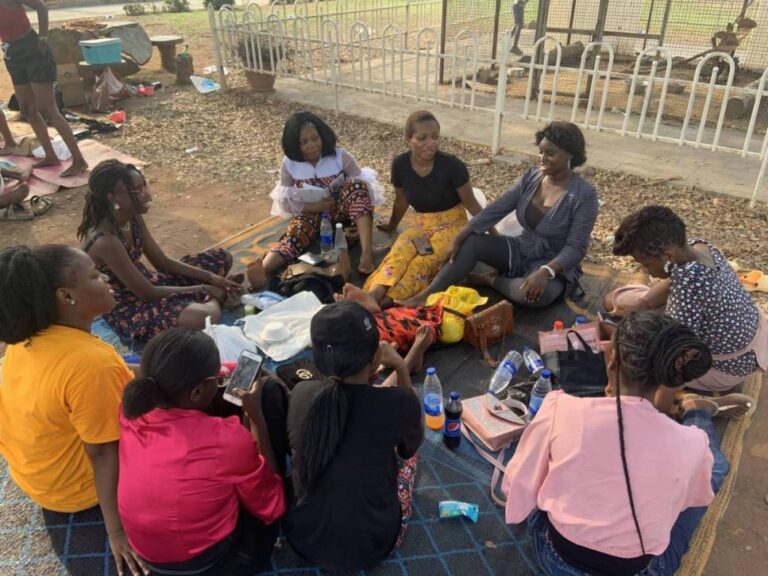Girl Talk Nigeria held a session on the 4th of February with The theme of this year’s sessions focused on Sexual Health and Reproductive Rights (SRHR) the topic chosen was ‘What They Don’t Tell Us About Our Bodies’, focusing on the forms of sex education taught to young Nigerian women.
It was a group discussion among women between the ages of 18 – 29, and we addressed subjects on where they first heard about sex, what they were told and what they thought they should have been told instead.
Most participants’ shared how their first encounter of sexual education was with their mothers. A common myth taught to the participants was the idea that just being in close contact with a man could get them pregnant, and as such they were advised to stay as far as possible from men. This led to them getting distressed when they had to be around boys in school.
We also talked about virginity as a construct and how Nigerian society puts a lot of importance on a woman being a virgin; pure, innocent and untouched. We examined the expectation that women have to be ready at all times to have sex with their husbands and how this directly promotes marital rape.
The various problems associated with abstinence being presented as the only method of avoiding unwanted pregnancy, the reluctance of people to examine other methods and the societal and religious aversion people have to sex that is outside the confines of marriage and without the purpose of procreation means that the sex education given to young women only focuses on maintaining their ‘pure, untouched, virgin’ status and when they’re older, on satisfying their husbands.
Reproductive health is rarely discussed. Health related conversations such as yeast infections aren’t talked about by the society and aren’t discussed in schools, so women often have to discover these by themselves. Participants talked about how they get most of their information from the internet, where misinformation is rife. Lack of access to information about their reproductive and sexual health made them use harmful products like scented vaginal washes and similar products, believing they help improve the scent of a self cleansing organ.
The group discussed the barriers to SRHR services such as the lack of accessible information, cost of medical care (such as getting a PCOS diagnosis, the high price of cervical cancer vaccines), misogyny by medical professionals. Participants reported incidents of slut-shaming during visits to the hospital or pharmacy. Doctors asking invasive, unnecessary questions and judging them for being sexually active heavily contributes to their reluctance to visit the hospital when there’s a need to. Participants in addition raised the concern on the misogyny exhibited by pharmacists when buying contraceptives and how some refuse to sell to them without a ring on their finger or preach to them when they purchase.
We ended the discussion on what we wished we had been taught instead. The most popular requests were a frank discussion about sex and the body parts involved, instead of a fear fueled conversation.


